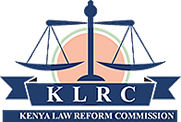Kenya`s budget 2015/2016 was the highest in the country`s history and was presented 3 months shy of the 5th anniversary of the promulgation of our Constitution on August 27th 2010. It is worth to noting that around Kshs. 154 billion was allocated to the Governance, Justice, Law and Order Sectors signaling the Government's commitment to maintain the pace of already instituted reforms. While we take stock of progress, we must evaluate current status of reforms which is the cornerstone in the implementation of the Constitution and give feedback to Kenyans on value for money.
Indeed the implementation process has progressed despite many challenges and has made commendable strides. A myriad of governance reforms kicked off in the police, judiciary, and administration of justice as well as in other Government institutions and sectors. This requires institutions such as ours to review all the laws of Kenya to ensure that it is modernized, relevant and harmonized with the Constitution. While the record may not be as glorious as anticipated, the development of legislation required to implement the Constitution has always been completed in time to guarantee that the laws are enacted within the deadlines set out in the Fifth Schedule of the Constitution. This is critical since the implementation of our Constitution is heavily premised on policy, legislative, institutional and administrative reforms. Some of the key milestones in our view are enumerated below.
Implementation of the Constitution
The need for new institutions to facilitate implementation was paramount to hasten the much awaited reforms. Consequently, the Commission for the Implementation of the Constitution (CIC) Bill, 2010, which provided for the functions, powers, qualification of, and appointment procedure for members of this Commission was drafted and enacted in the same year. Other commissions that have since been created and are discharging their mandates include: the Teachers Service Commission, Public Service Commission, Commission on Revenue Allocation, Judicial Service Commission, Salaries and Remuneration Commission, The Ethics and Anti-Corruption Commission (formerly KACA), the National Equality and Gender Commission, the National Commission on Human Rights, The National Land Commission, and the Commission on Administration of Justice among others. The Independent Offices of the Auditor-General, Controller of Budget and Directorate of Public Prosecutions are up and running despite the teething challenges.
Electoral Reforms
Reforms in the electoral governance formed part of the key agenda that culminated in the National Accord in 2008 owing to the 2007/2008 post-election violence. Our Commission participated in developing several bills which have since been enacted to consolidate and strengthen the various laws on elections. These include: the Elections Bill, 2011 and the Independent Electoral and Boundaries Commission Bill, 2011. To facilitate efficiency in the management of elections, the Political Parties Bill, 2011 and the Campaign Financing Bill, 2011 were also enacted.
Judicial Reforms
A transformative and effective judiciary called for instrumental reforms. The Commission assisted in developing a number of far-reaching legislation which have since been enacted into law. These include: the Vetting of Judges and Magistrates Bill, 2011, the Judicial Service Commission Bill, 2011, the Supreme Court Bill, 2011, the Environment and Land Court, Bill, 2011 and the Industrial Court Bill, 2011. Their ongoing implementation is impacting positively the dispensation of justice.
Police Reforms
The National Task Force on Police Reforms and the Police Reforms Implementation Committee in which the Commission was fully represented holds the record for preparing transformative Bills, namely: the National Police Service Bill; the Private Security Providers Industry Regulation Bill and the National Coroners Service Bill. The National Police Service, the National Police Service Commission Bill and the Independent Policing Oversight Authority Bill have all since been enacted.
Devolution and Devolved Governance
We recognize that the Constitution require new laws to ensure that county governments have adequate support to enable them to perform their functions and optimize service delivery. To operationalize the system of devolved Government' a number of bills in whose preparation the Commission played a leading role such as the Urban Areas and Cities Bill, 2011, County Governments Bill, 2011, the the Inter-Governmental Relations Bill, 2011, the Transition to Devolved Government Bill, 2011, and the Public Finance Management Bill, 2011 are now enacted into law.
Public Participation
One of the fundamental gains of the Constitution of Kenya 2010, is in the manner in which the public is required to participate in policy, law making and as well as other governance and reform processes. The public participation principle under Article 10 of the Constitution encourages transparent debates and participation by various stakeholders. Reform agencies now seek consensus, publish information on various platforms for wide access and receive comments and input from various stakeholders. This has tremendously changed the reform process to bottom up as opposed top down.
While the expectations are still high, we must engender a progressive culture of constitutionalism and a need for all stakeholders to work together in nurturing the baby after helping midwife the transition. This is the basis on which the Commission is currently undertaking a post-promulgation audit of all legislation to determine the challenges of implementations, gaps, overlaps and regulatory impact analysis amongst others which report will be shared with the people of Kenya and our stakeholders. It is hoped that the Post-Promulgation Audit Report will lay the foundation for effective review and reform of these laws.
Joash Dache, MBS
Secretary/CEO, Kenya Law Reform Commission
{jcomments off}
